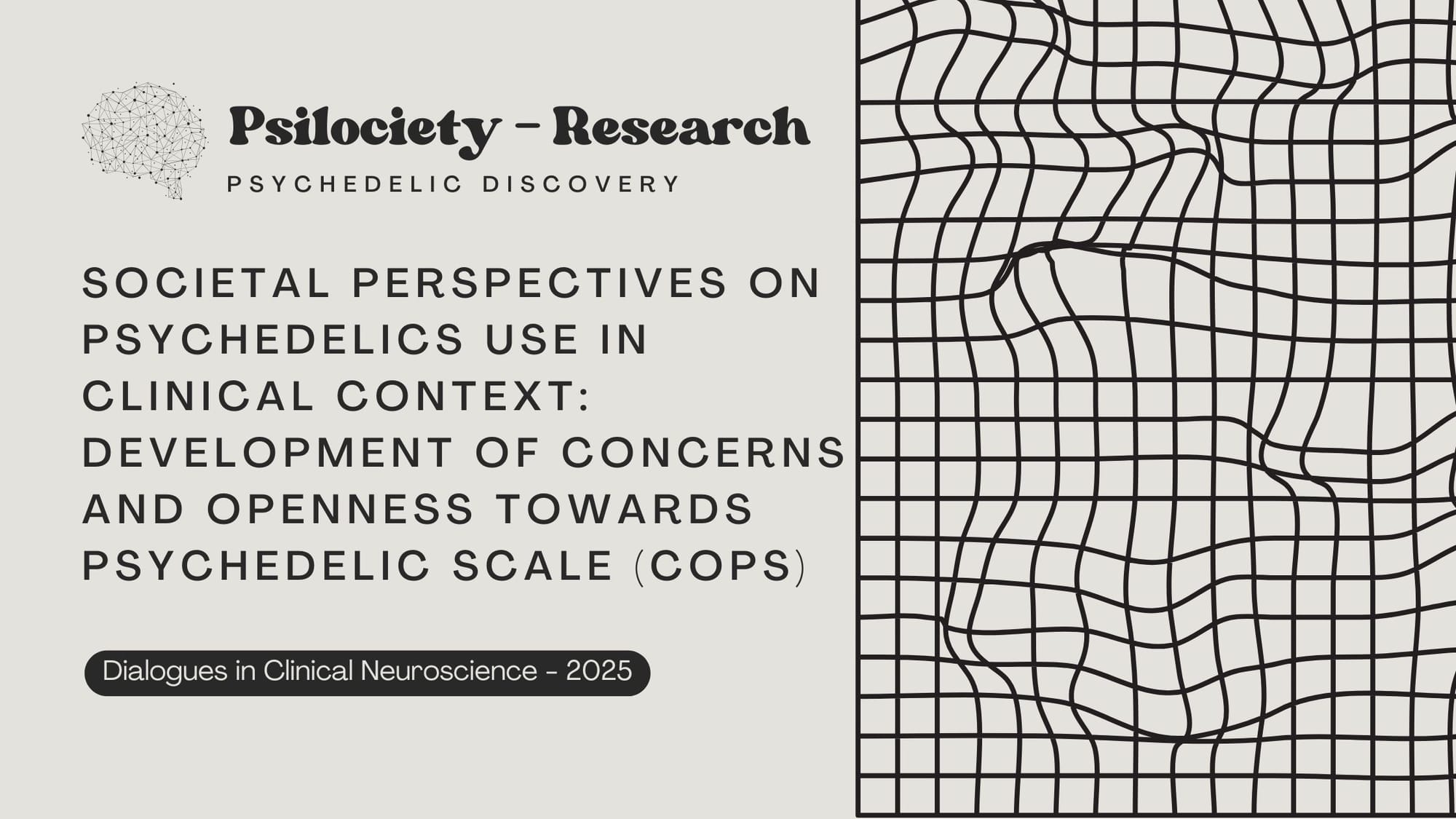Societal Perspectives on Psychedelics Use in Clinical Context: Development of Concerns and Openness Towards Psychedelic Scale (COPS)
A study introducing the Concerns and Openness Towards Psychedelics Scale (COPS), a tool for assessing public perceptions of psychedelic therapy.

Title & Introduction
- Paper Title: Societal Perspectives on Psychedelics Use in Clinical Context: Development of Concerns and Openness Towards Psychedelic Scale (COPS)
- Published In: Dialogues in Clinical Neuroscience
- Publish date: March 6, 2025
- Authors: Paweł Holas, Justyna Kamińska, Marcin Zajenkowski
- Objective: To develop and validate a scale measuring societal attitudes towards psychedelic-assisted therapy, identifying dimensions of openness and concerns.
- Importance: Understanding public attitudes toward psychedelics is essential for shaping policy, clinical practice, and education on psychedelic-assisted therapies.
Summary & Takeaways
Key Takeaway: The Concerns and Openness Towards Psychedelics Scale (COPS) effectively quantifies public attitudes, revealing that psychological flexibility and openness correlate with more positive perceptions of psychedelic therapies.
Practical Application: The COPS scale can be used to assess public perception, guide educational campaigns, and inform regulatory policies surrounding psychedelic-assisted therapy.
Key Background Information
- Context: Psychedelic-assisted therapy is gaining scientific recognition, but public acceptance remains divided due to historical stigma and legal restrictions.
- Hypothesis: Attitudes toward psychedelics are influenced by personality traits, knowledge, and exposure, with openness to experience predicting more positive views.
Methodology
- Study Design: Two-part psychometric study validating the newly developed scale.
- Participants: 1000 individuals in Study 1 (convenience sample) and 843 individuals in Study 2 (representative Polish sample).
- Intervention/Exposure: Survey-based assessment using exploratory and confirmatory factor analysis.
- Controls: Comparison of COPS scores with established psychological constructs.
- Duration: Cross-sectional data collection.
Key Findings
Primary Outcomes:
- The COPS scale consists of two dimensions: Openness Toward Psychedelics and Concerns Toward Psychedelics.
- Higher openness scores correlate with psychological traits like mindfulness, agreeableness, and meaning in life.
- Higher concerns scores are associated with skepticism, lack of knowledge, and lower psychological flexibility.
Secondary Outcomes:
- Societal attitudes toward psychedelics are shaped by personality traits and exposure to scientific discourse.
- Public concerns focus on safety, legality, and misconceptions about psychedelic-induced harm.
- Educational efforts could shift attitudes by increasing awareness of scientific evidence supporting psychedelic therapies.
Interpretation & Implications
- Conclusion: The COPS scale provides a validated tool for assessing societal attitudes toward psychedelics, aiding in public health and policy discussions.
- Implications: Greater openness toward psychedelics is linked to psychological well-being, suggesting that reducing stigma could enhance acceptance of psychedelic-assisted therapy.
- Limitations: The study is limited to a Polish population, requiring cross-cultural validation in other regions.
Researchers & Publication
- Researchers: Paweł Holas, Justyna Kamińska, Marcin Zajenkowski
- Publication Name: Dialogues in Clinical Neuroscience
- Study URL: 10.1080/19585969.2025.2470426

